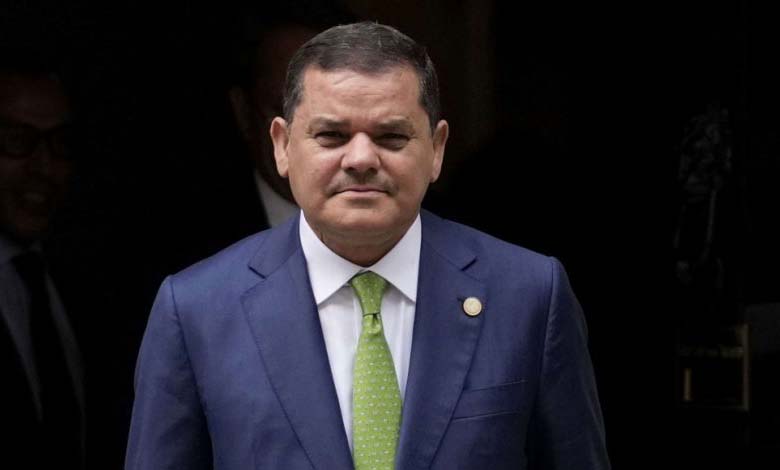Counterfeit Billions in Libya Prompt Dbeibah to Demand Immediate Investigation

The Central Bank of Libya has revealed the existence of over 3.5 billion Libyan dinars in counterfeit currency from the second series of the 50-dinar denomination.
Abdelhamid Dbeibah, the outgoing Prime Minister of Libya’s Government of National Unity, has called on the Attorney General to launch an immediate and comprehensive investigation into a major scandal involving counterfeit 50-dinar banknotes, which were recently withdrawn from circulation.
-
Accusations of Bias Target UN Mission in Libya
-
Dbeibah Turns to the Muslim Brotherhood, Haftar Warns of Decisive Moment… Libya on a Knife’s Edge
This revelation adds to a growing list of economic challenges including inflation, recession, and a continual decline in the value of the dinar, amid failed efforts to unify the country’s divided institutions — putting Libya’s economic future at serious risk.
In a Facebook post Sunday night, Dbeibah wrote: “The Central Bank’s confirmation of a 3.5 billion dinar discrepancy beyond the officially printed amount validates our repeated warnings about the circulation of counterfeit currency in the Libyan market used to purchase hard currency — thereby financing the entities behind this forgery,” hinting at authorities in eastern Libya.
-
Libya: Dbeibeh Uses Religion and Wealth to Cling to Power as Protesters Intensify Pressure
-
Libyans Persist in Street Protests to Oust Dbeibeh — A Message to Tetteh
He described the situation as “grave, threatening the core of economic stability, the national currency, and people’s livelihoods,” urging the Attorney General to act and hold all those involved in this crime accountable, stating that “silence or tolerance is not an option.”
Earlier on Sunday, the Central Bank disclosed that more than 3.5 billion dinars from the second series of the 50-dinar banknotes had been falsified.
-
Salvation Friday: Libyans Hold Their Breath Amid Fears of Militia Chaos
-
Libya’s Muslim Brotherhood Incites Armed Resistance Against Peaceful Solutions
-
Libyan Expert: Dbeibeh’s Move Is Too Late… Militias Have Become Partners in Power
On May 8, the Bank officially completed the process of withdrawing all 50-dinar notes from circulation — both the first series printed in the UK by Tripoli authorities and the second series printed in Russia by Benghazi authorities — in a move aimed at maintaining monetary stability and strengthening the value of the Libyan dinar.
In a statement issued Sunday, the Bank revealed that the initial count of the withdrawn currency showed a discrepancy of over 3.5 billion dinars in the second series: while 6.650 billion dinars were officially issued, the total deposited with the Central Bank amounted to around 10.211 billion.
-
Where is Western Libya Heading? Open Scenarios for the Future of the Conflict
-
Clashes, Divisions, and Delayed Solutions… Libya on the Brink of Explosion
The Bank stated this discrepancy represents an over-issuance not registered in Benghazi’s official issuance records and not compliant with Article 39 of the Banking Law — thereby constituting unlawful acquisition and causing significant damage to the Libyan economy.
As for the first series, 7 billion dinars were issued, and approximately 6.828 billion dinars were returned to the Bank.
-
Libyan Presidential Council Decrees: A Return Ticket to the Political Spotlight
-
Corruption and Terrorism Financing Drive Washington to Suspend Aid to Libya
-
Weapon Chaos in Libya: Zawiya under the Grip of the Al-Farr and Al-Qasab Conflict
The statement noted that excessive printing of this denomination outside the control of the Central Bank negatively impacted the dinar’s value, led to a surge in demand for foreign currency on the black market, and increased the risks of money laundering and terrorism financing. Consequently, the Bank’s board decided to withdraw the 20-dinar notes — both the UK-printed first series and the Russia-printed second series — replacing them with more secure currency. September 30, 2025, was set as the final date for circulation of the old notes, as part of efforts to preserve currency structure and strength.
Libya has been divided since 2014, with rival factions controlling the East and West. Despite a 2020 ceasefire and ongoing efforts to unify state institutions, a political solution remains elusive, with the threat of renewed conflict still looming.
-
Political Stalemate Brings Militias in Western Libya Back into the Spotlight
-
Western Libya Ablaze: Bloody Clashes Turn Streets into Warzones
Observers consider a judicial investigation into the counterfeiting scandal essential for identifying perpetrators, restoring some degree of public trust, and ensuring accountability to prevent future financial crimes. However, they warn that such an investigation alone will not be enough to resolve Libya’s deep-rooted economic crisis.
Analysts argue that the country’s economic deterioration and currency fraud are symptoms of a broader political fragmentation and power struggle. They emphasize that without a unified, effective government, functional financial institutions, and restored public trust, no legal action can adequately address the crisis.
-
Libya Thwarts a Major Terrorist Plot near the Tunisian Border
-
The Brotherhood’s Mufti and Dbeibeh… An Alliance Driving Libya toward Catastrophic Scenarios
They conclude that saving Libya’s economy requires a comprehensive political solution — including reunifying national institutions, empowering an independent Central Bank, securing lasting stability, and initiating structural economic reforms. Without this, judicial measures will merely address the symptoms of a far more profound and systemic disease.
-
Ghanaian Hanna Tetteh Appointed UN Envoy to Libya after Months of Vacancy
-
Transfer of Armed Elements from Syria to Libya… A New Muslim Brotherhood Plan
-
Tension rises in Western Libya after assassination of one of the biggest human traffickers
-
Libya Demands Tunisia Extradite Two Individuals Involved in the Assassination of Mliqta
-
The Libyan Eastern Government Searches for Abducted Deputy
-
Calls in Libya to Prevent Tunisian Arrest Warrant against Muslim Brotherhood Businessman
-
Libya Caught in the Crossfire of Great Power Rivalries… What Are the Possible Scenarios?
-
Turkey expands its influence in Libya through military cooperation












